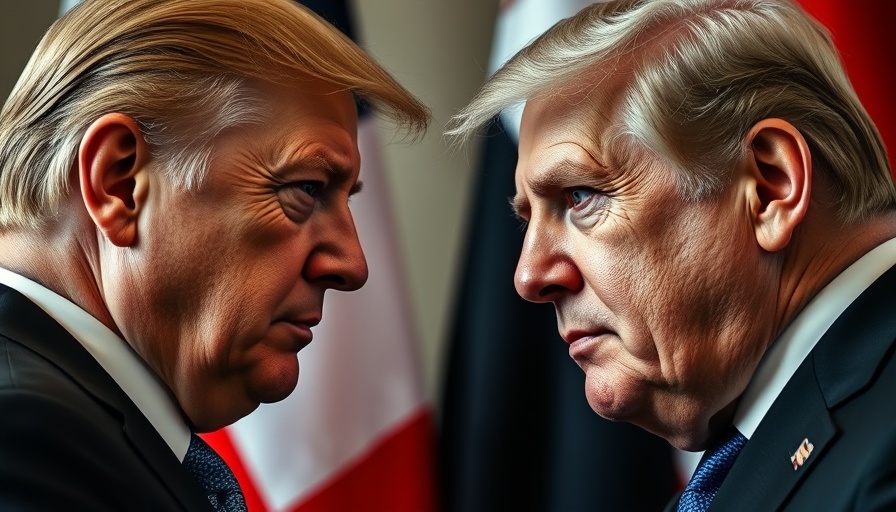
The Evolving Landscape of U.S.-Iran Relations
The ongoing conversations regarding potential sanctions relief for Iran signal a pivotal moment in U.S.-Iran relations. As the U.S. considers a preliminary agreement aimed at alleviating certain punitive measures, the core demand remains an unequivocal halt to all uranium enrichment activities. This delicate balancing act has sparked debate among international observers and policymakers alike, with implications that reach far beyond the Middle East.
Why This Matters to Culturally Engaged Christians
For globally aware Christians, understanding these negotiations is crucial. The stability of the Middle East, where many Christians face persecution, is deeply intertwined with the outcomes of these discussions. A more stable Iran could mean less unrest in the region, potentially alleviating some pressures on vulnerable Christian communities. As interfaith dialogue becomes increasingly essential in this landscape, the hopes for peace can serve as a bridge towards greater understanding between faith groups.
Historical Context: A Complex Timeline
Historically, U.S.-Iran relations have been fraught with tension, beginning with the 1979 Iranian Revolution that led to the establishment of the Islamic Republic. Sanctions were imposed to curb Iran’s nuclear program, yet these measures have not drastically altered Iran’s ambitions. The introduction of an interim agreement to suspend certain sanctions indicates a potential shift in approach— a willingness to negotiate that could yield benefits for all parties involved.
Parallel Examples: Negotiation Outcomes from Different Regions
Examining past negotiations can provide insights into the potential success of U.S.-Iran talks. For instance, the peace process in Northern Ireland serves as a poignant reminder of how persistent dialogue can lead to seemingly unimaginable compromises. Similarly, the U.S. and North Korea's discussions about denuclearization highlight the complex dynamics involved. These examples can offer hope and present realistic models for resolving conflicts through diplomacy rather than aggression.
Future Predictions and Opportunities
If the U.S. moves forward with sanctions relief under a framework that requires Iran to take concrete steps towards nuclear disarmament, there may be broader implications for regional peace. This development could transform relationships not only with Iran but also with U.S. allies like Israel, who have voiced concerns over Iran's nuclear aspirations. The road ahead is fraught with challenges, yet the potential for a cooperative future remains a possibility worth striving for.
Challenges and Counterarguments
While these discussions are promising, they do not come without skepticism. Critics argue that sanctions relief could embolden Iran, encouraging further destabilizing activities in the region. Understanding these counterarguments is crucial for a well-rounded perspective, especially for advocates of religious freedom. A deep-rooted apprehension surrounds negotiations with a regime accused of human rights violations, raising questions about the moral implications of potential policy shifts.
Taking Action: Advocacy and Awareness
As discussions evolve, the role of advocacy becomes increasingly important. Engaging in informed conversations, supporting humanitarian efforts, and amplifying voices from persecuted communities can foster a more nuanced understanding of these geopolitical dynamics. Through prayer, dialogue, and proactive involvement, Christians can contribute to a narrative of hope and resilience for those impacted by these decisions.
In conclusion, the potential for sanctions relief on Iran is about more than just diplomacy; it's about the lives that hang in the balance. By advocating for peace and understanding, we can work collectively towards a more stable and just world.
 Add Row
Add Row  Add
Add 








 Add Row
Add Row  Add
Add 

Write A Comment